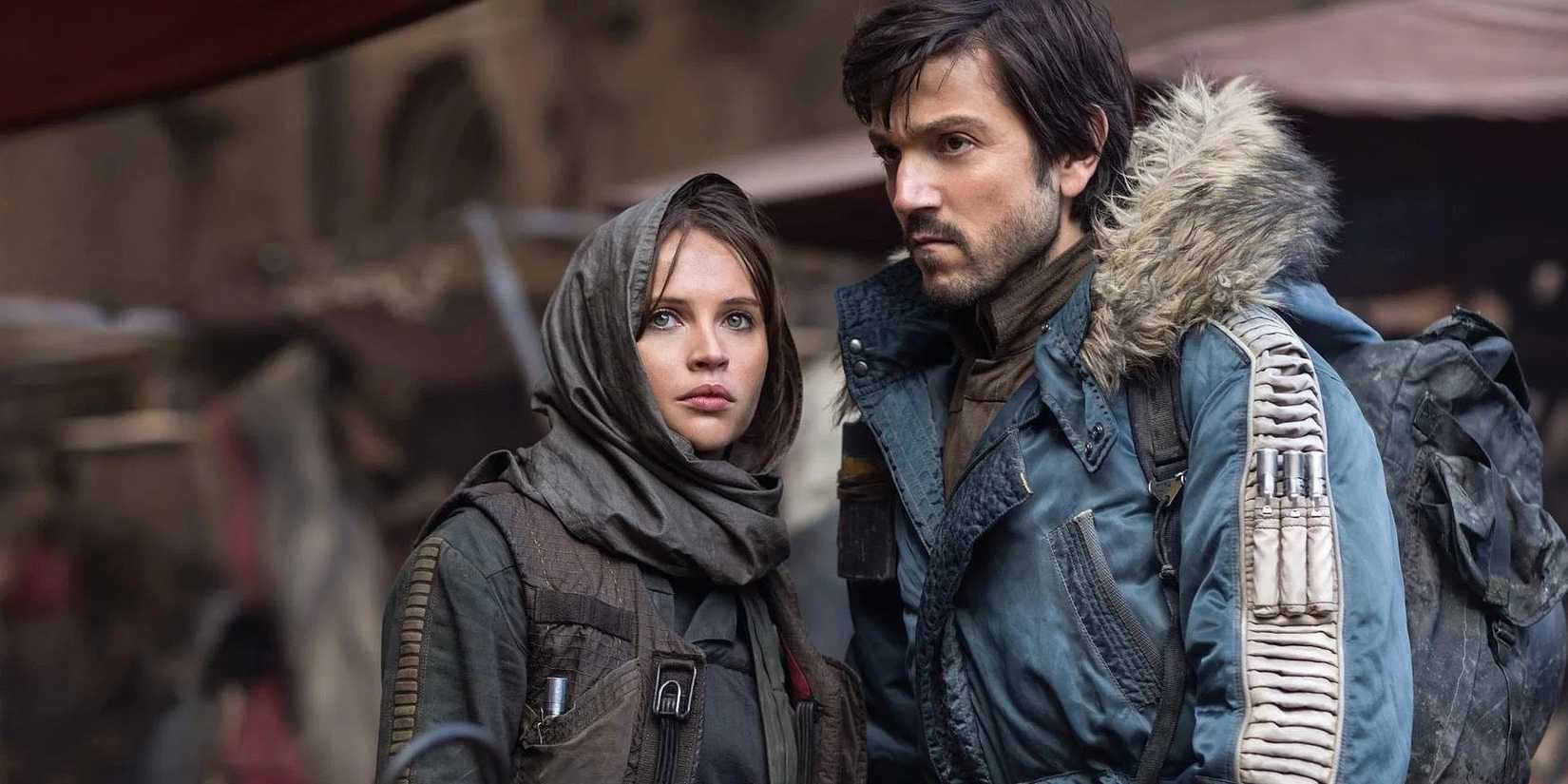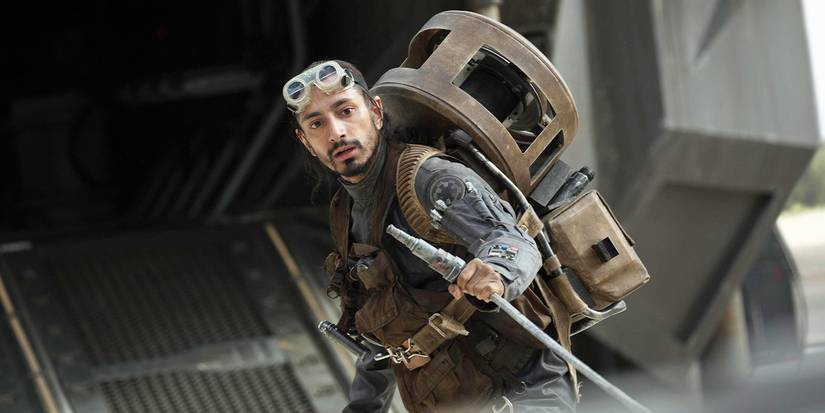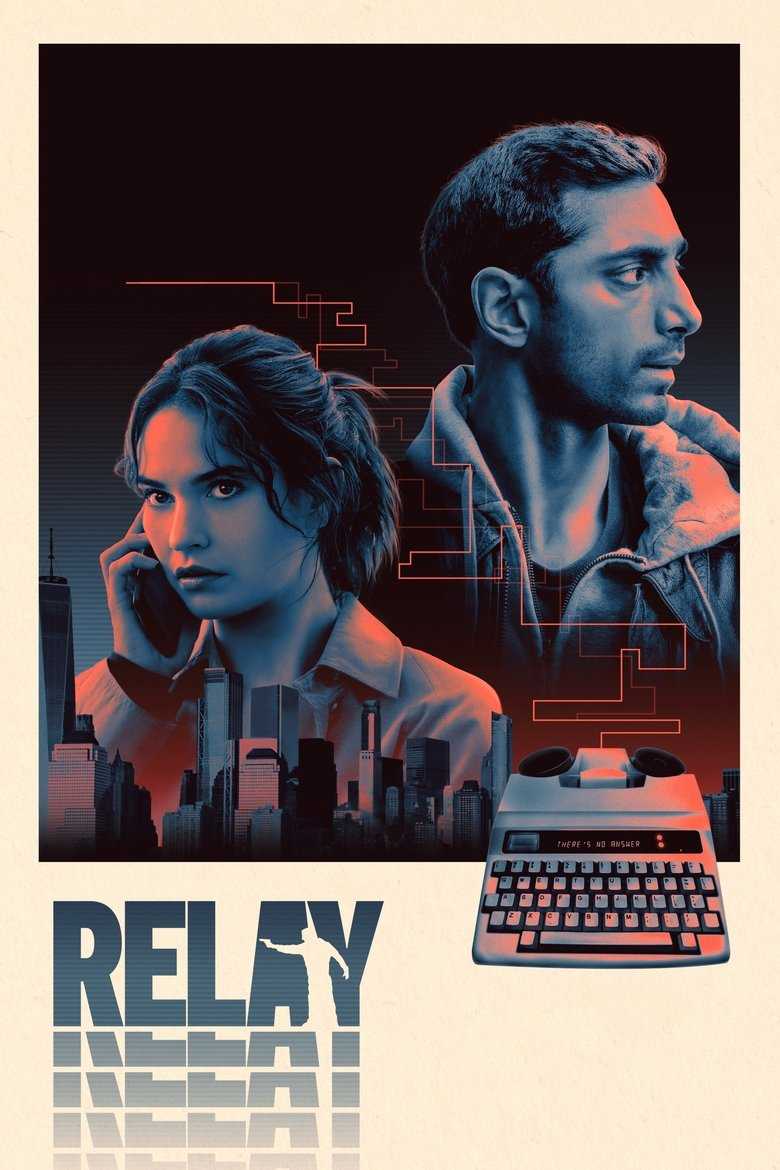[ad_1]
Summary
- Relay premieres at Toronto International Film Festival to positive reception with Riz Ahmed and Lily James
- Ahmed stars as a fixer in a thriller maintaining secrecy for whistleblowers until a new client causes chaos
- Ahmed and James discuss the unique script, filming in NYC, and their collaborative process with director Mackenzie
After the positive reception of its world premiere at the 2024 Toronto International Film Festival, David Mackenzie‘s (Hell or High Water) paranoid thriller, Relay, is now playing in theaters nationwide. The movie stars Riz Ahmed (Sound of Metal) and Lily James (Mamma Mia! Here We Go Again), and offers audiences a throwback to propulsive ’70s mysteries with a high-stakes cat-and-mouse game.
In Relay, Ahmed is Ash, a fixer who keeps whistleblowers safe from the corrupt corporations that want to silence them. He’s diligent in working from the shadows to protect his identity, as well as his clients, utilizing a relay service that maintains a wall of secrecy between them. But when a new client, Sarah (James), reaches out for help, fearing for her life, Ash’s practiced discipline begins to slip.
In this conversation with Collider’s Steve Weintraub, Ahmed and James share what’s so unique about Relay‘s script that allows this genre film to stand out and how New York City plays its own character in an otherwise tight cast. They discuss their experience of working with Mackenzie on a whirlwind shoot, just under a month, collaborating in an “organic and alive” way. They also share tales from other sets for cut scenes from Rogue One: A Star Wars Story and James’ upcoming Cliffhanger reboot.
‘Rogue One: A Star Wars Story’ Left This Entire Scene on the Cutting Room Floor
James also shares the intense filming conditions for the Cliffhanger reboot.
COLLIDER: I really want to start with congrats on the movie, but before we get into it, I like throwing a curveball or two at the beginning. For both of you, you’ve done a ton of projects. When you think back on them, what do you consider the toughest shot or sequence of your career?
RIZ AHMED: Wow.
LILY JAMES: My goodness.
AHMED: I’m going to jump in and say we did a one-shot take on my first week of shooting Rogue One that we spent a whole week shooting. I was carrying, like, a 50-kilo backpack prop on my back, running through sand, dodging stormtroopers and booby traps, and it wasn’t in the final movie.
JAMES: It didn’t make it in?
AHMED: No, it didn’t. They changed the whole storyline. Maybe they changed the whole storyline because I was so bad in that shot, but they changed the whole storyline, and none of that whole bit of the film was even in the final film. We reshot this other stuff. That was pretty tough. I was like, “Why can’t you make the prop lighter?” But no, they take their props so seriously on Star Wars.
JAMES: I’m always that annoying person who’s like, “Make it heavy. I need it to be heavy.” [Laughs] I did a lot of hanging off mountains recently. I was in the Dolomites in Austria doing Cliffhanger, and we were hiking for an hour and a half, also with all our own stuff on our backs as actors. There was no kind of hair and makeup that could go with us. We were kind of hanging off ropes and real heights and really climbing pretty much every day and battling snowstorms and weather patterns that would come in and completely disrupt us. We’d suddenly have to quickly evacuate the mountain before the fog set in, and you couldn’t see your own hand. So, yeah, that was pretty crazy.
See, I like how people think that being an actor is really luxurious and you’re not physically challenged, but every time I speak to actors, they tell stories like this. You really get put through the wringer.
‘Relay’ Will Have Audiences Leaning Into Its “Classic, Twisty” Tale
“There’s so much going on below the surface.”
With Relay, one of the things that I really, really enjoy about this movie is that it’s a smartly written script. It’s always one step ahead of the audience. There’s not too much exposition. Can both of you talk a little bit about the script and the quality of the writing, and the storytelling?
AHMED: It was a real page-turner of a script, and really confident, insofar as, for example, my character doesn’t even speak for the first half an hour of the movie. When you’re reading the screenplay, it really gets you leaning in and asking questions and feeling intrigued, and I think that it has that effect on the audience as well. So yeah, just a confident, classic, twisty thriller that takes you in its hands as an audience member and takes you on a really fun ride.
JAMES: And there’s so much going on below the surface in terms of what these characters are dealing with, what they’re battling with, these great kind of missions that they have and really fighting for their lives, and this sense that these lonely people in New York City. There was something just so human about the portrait of these characters, but also in this very high genre kind of world and high-stakes situation. And we were really in New York City, which, for me, I was like, “Get me to that city!” I’ve always dreamed of filming there. I’d love to live there. It’s such a palpable character in the film, New York. You feel it has its own energy.
David [Mackenzie] told me that you had, like, 300 scenes to do in 27 days, and one of the tougher sequences was the Times Square sequence, where you didn’t have it locked down. I could be wrong about this, but you were just filming, and people were around. Can you talk a little bit about filming that sequence?
AHMED: It’s kind of crazy.
JAMES: Respect to David for shooting it that way, for not shutting it down, and for having real people and real crowds and these faces that burst onto the screen and add such a beautiful authenticity to the film. It was bonkers. I mean, we had no control. It was chaos.
AHMED: I think that’s David’s style and probably why he wanted to shoot in New York City, because you wanted to welcome in the chaotic, intense energy of the streets of New York. It’s so, really, invigorating. It was challenging at times, but it kept you on your toes. That kind of aliveness and that unpredictability, I think, is on the screen. I think you can feel that in the film, because part of David’s process has a fluidity and that ferocious pace to it.
I’m a big fan of his work.
Filming ‘Relay’ Was a “Bizarre and Disorientating” Experience
The pair discuss the interesting way they rehearsed and prepared for the shoot.
I’m so fascinated by the way actors like to prepare for a role. For both of you, you see the shooting schedule coming up for the next week. You know what you’re going to do on Monday. Over the weekend, when you’re looking at the script and you’re figuring out scenes, can you take me through your process a little bit, like what that weekend is like for you when you’re shooting a movie?
JAMES: Well, this was pretty unique because we were getting together and working together with David, like, every weekend and talking about the next week’s work and finessing and developing as we went. We were also adapting off of night shoots, so your weekend becomes this bizarre and disorientating.
AHMED: Yeah. It was really interesting, the open and collaborative process on this one. It wasn’t like, “Alright, everybody go away on their own and do their homework, locked away in their cage.” It was more like, “Alright, see you guys on Saturday. We’ll work from 10–4. We’re going to get these scenes into shape. We’ve discovered some stuff this week. How is that going to change what we do next week?” And similarly, “We’re going to be rehearsing stunts on Sunday.” So, it was a very organic and alive process. It felt very much like we were riding a wave in real time, rather than we had this finished, fossilized script and then we’d have to bring it to life afterwards. It was like the whole thing was just moving and alive, and it had a kind of pace and a collaborative energy to it.
Relay is in theaters now.
[ad_2]



